1874 CONFEDERATE HISTORY of the CONFEDERACY Southern REBEL SOLDIER Civil War CSA


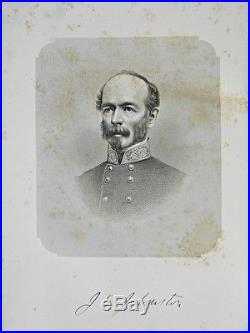
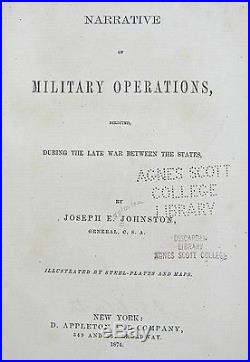
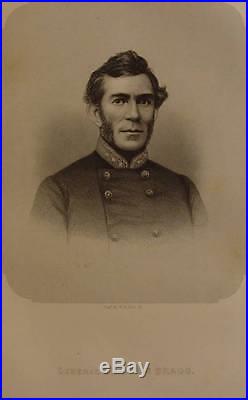
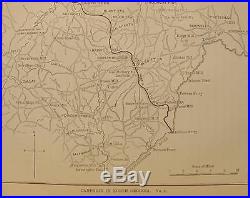
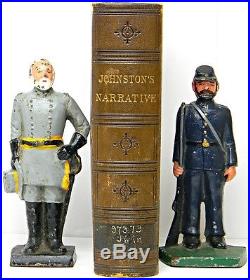
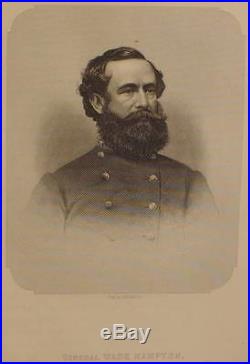
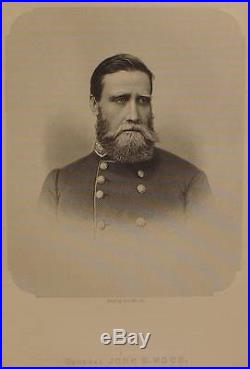
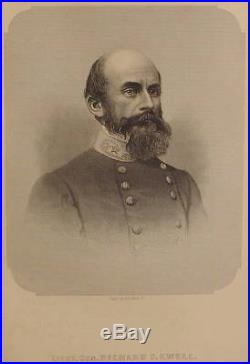
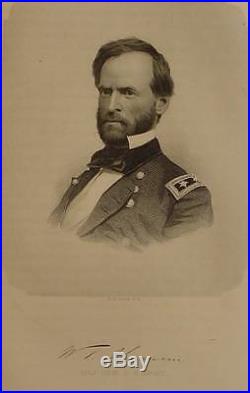
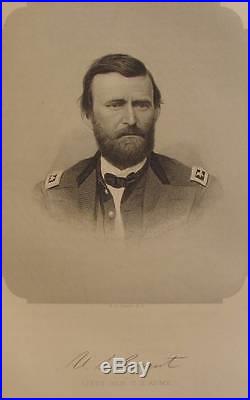

Of " NARRATIVE OF MILITARY OPERATIONS DURING THE LATE WAR BETWEEN THE STATES " by Joseph E. YOU'LL LOVE THIS BOOK!! Engaged in much debate over the causes of the Confederate defeat, Gen. Which was highly critical of JEFFERSON DAVIS and many of his fellow generals.
This is an eye-witness narrative by one of the major figures in the war. General Joseph Eggleston Johnston, (1807-91) was one of the earliest Confederate reminisces ; strongly partisan, anti-Davis, and defensive in tone. A Virginian, Johnston graduated from West Point and served in the artillery for eight years before resigning to become a civil engineer. As Quarter Master General of the U.
Army, with the rank of Brigadier General in 1860, he resigned on the outbreak of the American Civil War. Regaining his rank in the Confederate Army, he was the senior officer at first BULL RUN , where he yielded command to Beauregard, and was then promoted full general to command the Army of Northern Virginia. Badly wounded at Fair Oaks in May 1861, Davis turned over command to the more aggressive General ROBERT E.
LEE , who would lead the Army of Northern Virginia for the rest of the war. Johnston took over the Department of the West in November 1862. Jefferson Davis countermanded his order for the evacuation of Vicksburg, and, as Johnston had feared, he proved unable to relieve the city.Having turned his back on his family in Philadelphia to join the Confederate Army and blamed by Southerners for the loss of Vicksburg, Confederate GENERAL JOHN C. PEMBERTON stood a lonely man at war's end.
Pemberton, in command of the military forces around Vicksburg, fought stubbornly to save the city and his command. However, on July 4, 1863, with the city on the brink of starvation, Pemberton was forced to surrender to GEN. GRANT , ensuring Union control of the entire Mississippi River and dividing the Confederate territory.Johnston, Pemberton's superior officer, opposed Pemberton's decision to make a stand at Vicksburg, and was quick to shift the blame for failure. In this book, Johnston publicly absolved himself of the defeat and authored the final blow on Pemberton's reputation.
Johnston took over the Army of Tennessee from BRAXTON BRAGG , falling back before Sherman's advance on Atlanta and winning a battle at Kennesaw Mountain. Davis, tired of constant retreat, replaced him by J. HOOD , who was duly beaten. In February 1865, he was restored to command of the scattered Army of Tennessee, and maneuvered with skill before being forced to surrender to GENERAL SHERMAN in April. He went into business after the war and served a term in Congress.Johnston was a pessimist and a difficult subordinate, but showed real talent in holding outnumbered armies together in retreat. It was not the good fortune of Johnston to acquire the prestige which so much assisted Lee and STONEWALL JACKSON , nor indeed did he possess the power of enforcing his will on others in the same degree, but his methods were exact, his strategy calm and balanced, and, if he showed himself less daring than his comrades, he was unsurpassed in steadiness.
Johnston, like Lee, never forgot the magnanimity of the man he surrendered to, and would not allow an unkind word to be said about General Sherman in his presence. When Sherman died, Johnston was a pallbearer at his funeral; during the procession in New York City on February 19, 1891, he kept his hat off as a sign of respect in the cold, rainy weather. Someone had some concern for the old General's health and asked him to put on his hat, to which Johnston replied If I were in his place and he standing here in mine he would not put on his hat. He caught pneumonia and died several weeks later.
This truly magnificent book is ILLUSTRATED!!! With superb steel-engraving portraits and maps, containing 602 pages, including a seventy-page appendix of field-orders and dispatches. It measures approximately 6" x 9 1/4".And is complete with 602 pages. Published in 1874, this book is in VERY GOOD CONDITION! For its age and especially to be 143 YEARS OLD!!! And tightly bound with NO TEARS!!! It measures 6 1/2" X 8 1/4" and is complete with all 602 pages plus 6 pages of the publisher's advertisements.
GET IT WHILE YOU CAN!!! Please see our other books too! The item "1874 CONFEDERATE HISTORY of the CONFEDERACY Southern REBEL SOLDIER Civil War CSA" is in sale since Thursday, July 20, 2017. This item is in the category "Books\Antiquarian & Collectible". The seller is "rebel_soldier" and is located in Cameron, North Carolina.
This item can be shipped worldwide.
- Subject: Military & War
- Topic: Civil War (1861-65)
- Binding: Leather
- Original/Facsimile: Original
- Special Attributes: History
- Place of Publication: American
- Publisher: D. APPLETON AND COMPANY
- Author: JOSEPH E. JOHNSTON
- Region: North America
- Year Printed: 1874
- Character Family: CONFEDERATE STATES OF AMERICA
- Language: English
- Country/Region of Manufacture: United States
